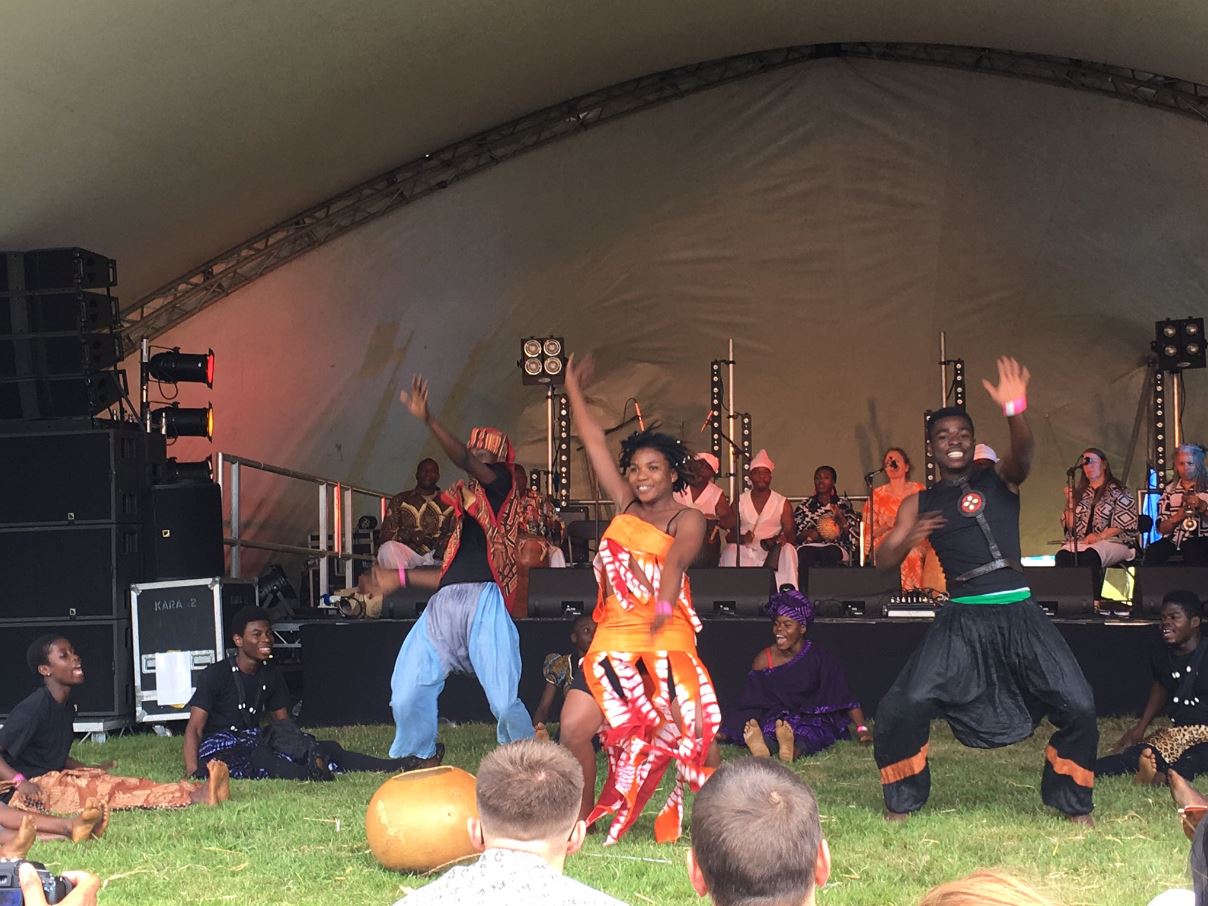Solas Festival 2017
23-25 June 2017
In 2017, the UNESCO Chair project started a collaboration with the Solas Festival. The UNESCO Chair curated a strand of events, all of which were about integration, migration and identity
Noyam African Dance Institute - Broken World, Broken Word
The highlight of the programme was the performance of Broken World, Broken Word by Noyam African Dance Institute. That performance is an output of a large research project called Researching Multilingually at the Borders of Language, the Body, Law and the State. Professor Alison Phipps was the Principal Investigator.
Noyam African Dance Institute perform at the Solas Festival.
Photo: Alison Phipps
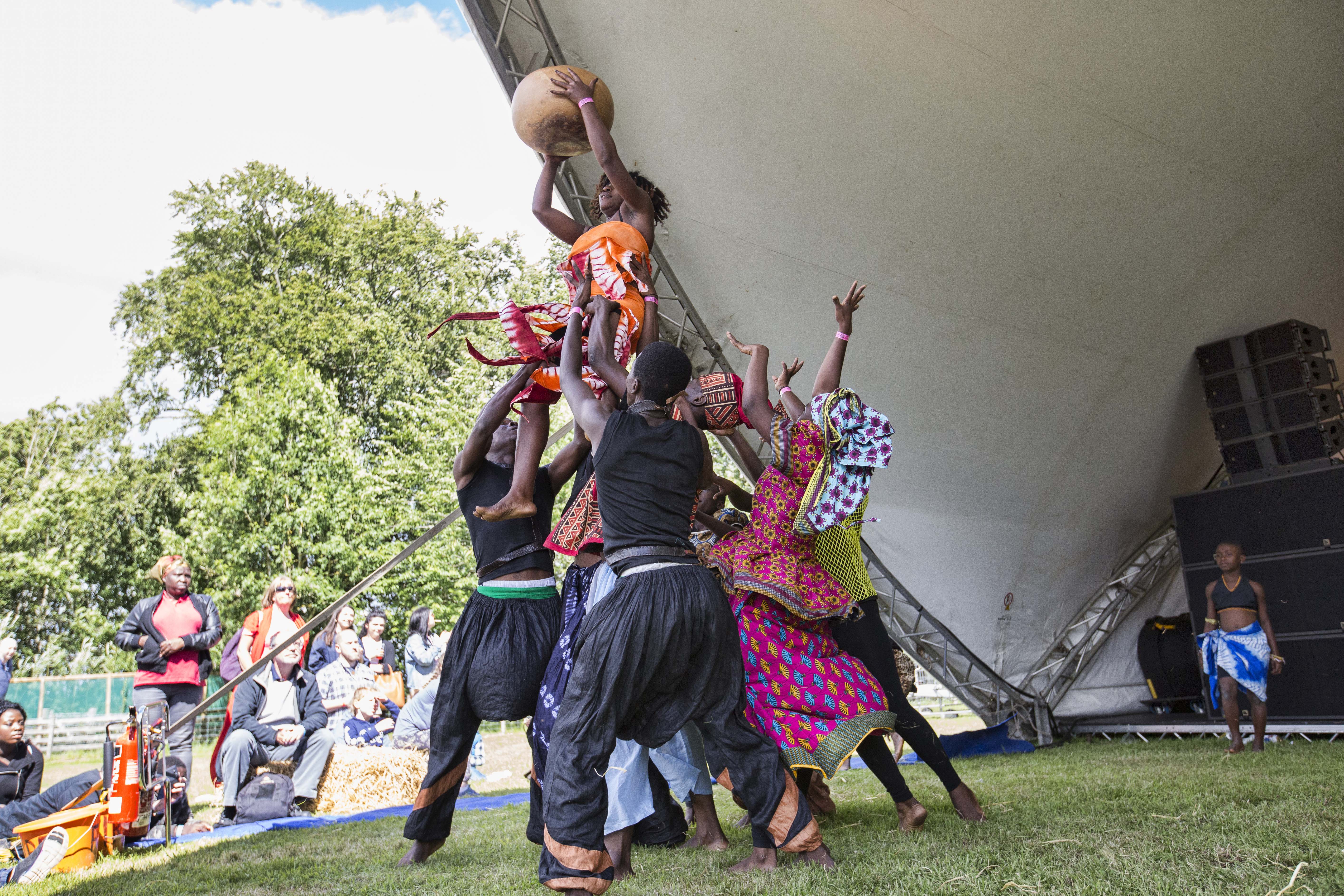 Broken World, Broken Word, performed by Noyam African Dance Institute at the Solas Festival 2017
Broken World, Broken Word, performed by Noyam African Dance Institute at the Solas Festival 2017
Photo: Karen Gordon
Film screening
Gameli Tordzo, UNESCO Chair Artist in Residence, created a feature film and a documentary about the research that was done at Noyam African Dance Institute. The film was screened at the Solas Festival as part of the UNESCO Chair strand.
Both the film and the documentary are available here.
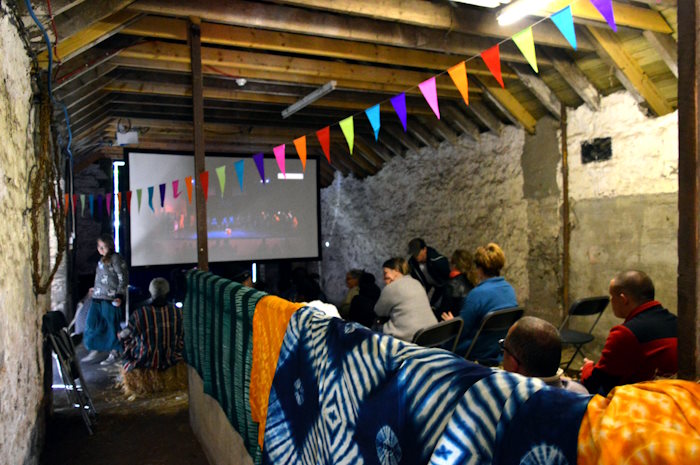 Photo: Sita Pieraccini
Photo: Sita Pieraccini
Ha Orchestra
Ha Orchestra, the first African symphonic orchestra in the UK, taps into the vast unexplored treasures of musical cultures and values of Africa and the African diaspora. Founded by Gameli Tordzro in 2014, the Orchestra performed at the Glasgow 2014 Commonwealth Festival, playing in major venues including Kelvingrove Band Stand, Glasgow Green, The Merchants Square and BBC at The Quay.
The Orchestra’s international musicians are based in 10 different European and African countries and play a range of African and Western instruments that you won’t normally hear played together. Their colourful costumes are designed and made by Naa Densua Tordzro.
At the Solas Festival in Perth, the musicians of the Ha Orchestra performed a full set, played the music for Broken World, Broken Word and also delivered two workshops on the various African instruments they play, including drumming, woodwind (flutes and whistles) and strings (Kora, Seprewa, Kamale Ngoni), for both adults and children of all ages. Workshop participants were offered the unique opportunity to try the amazing instruments.
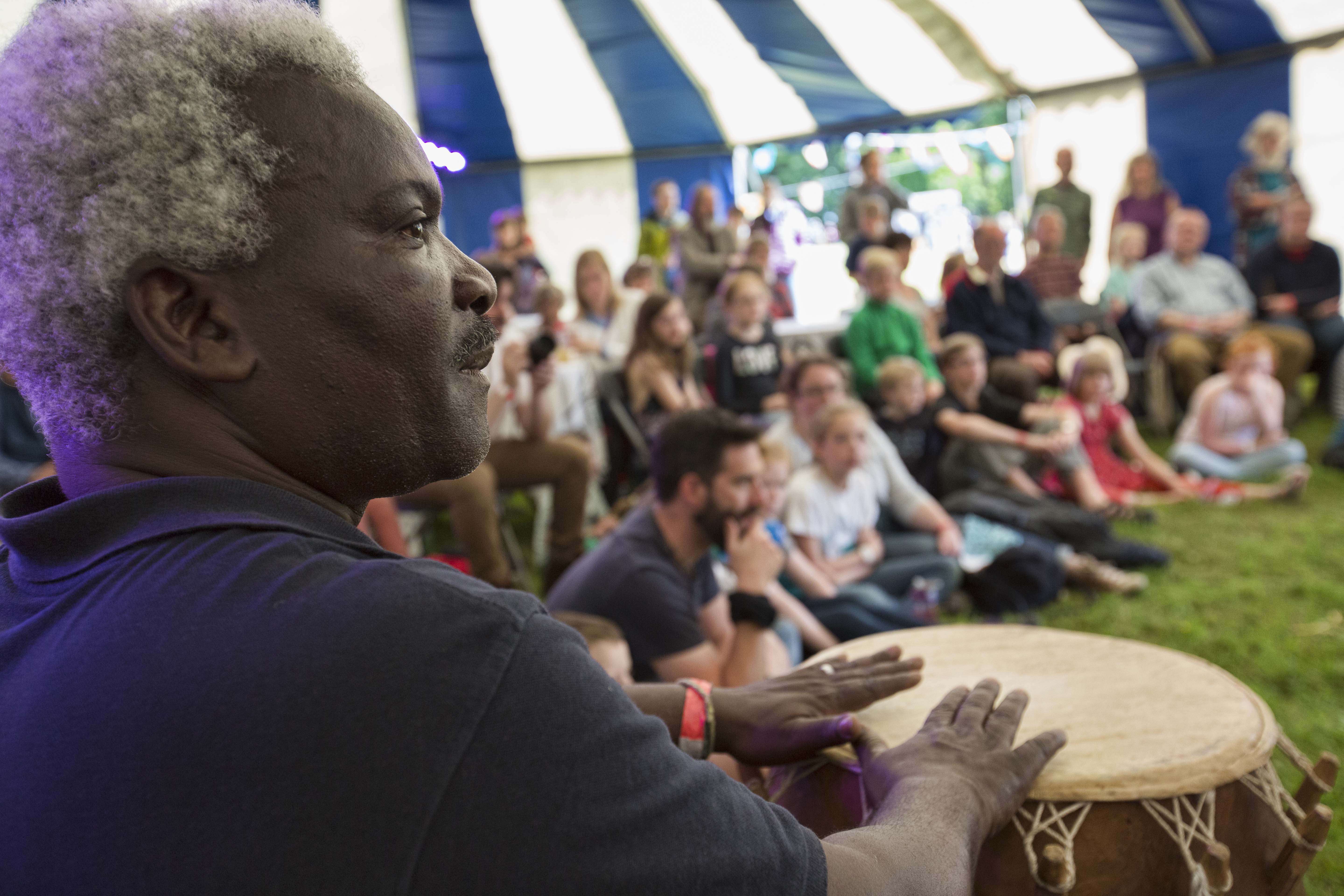 Ha Orchestra music workshop
Ha Orchestra music workshop
Photo: Karen Gordon
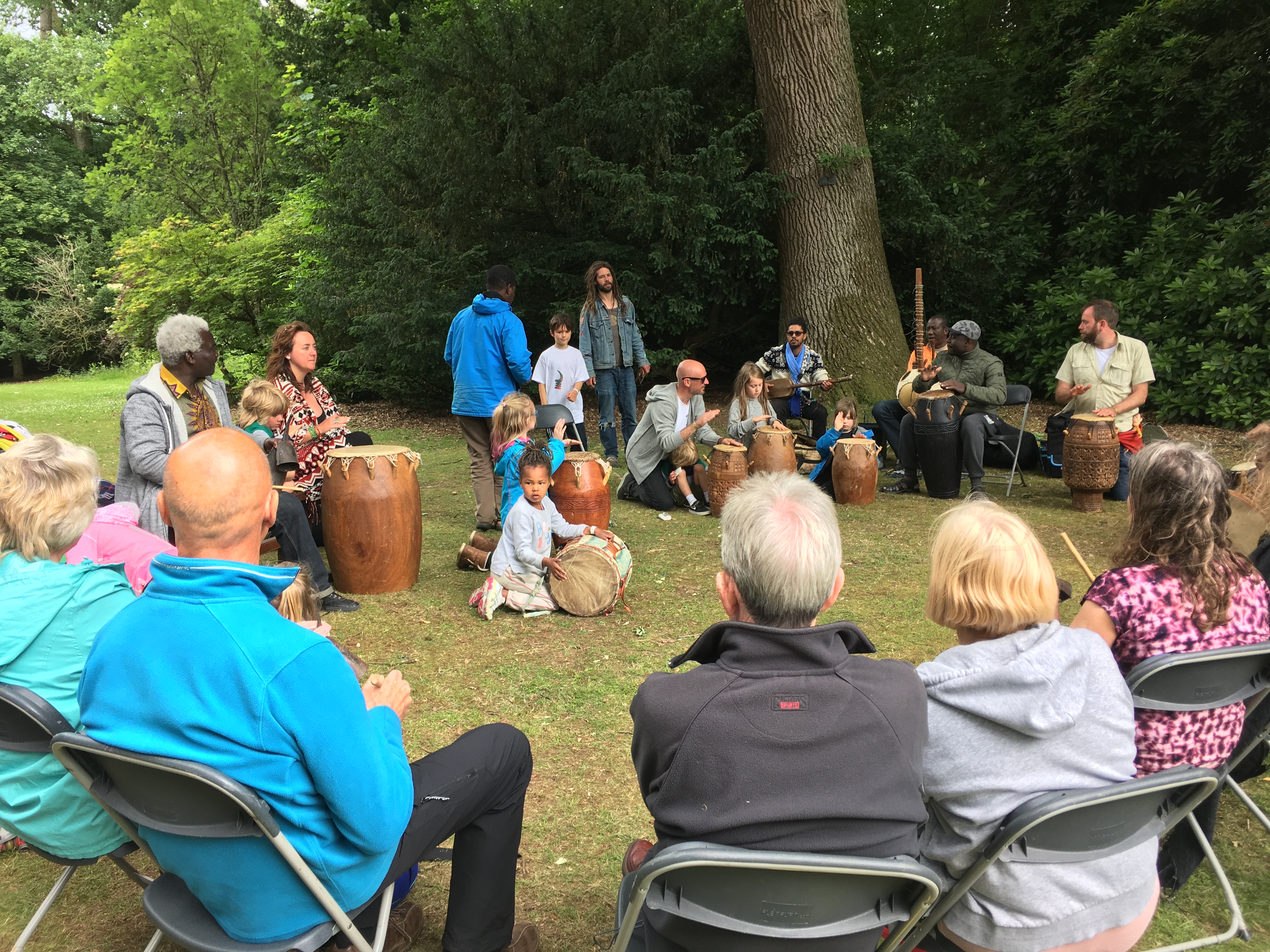 Drumming workshop with the Ha Orchestra
Drumming workshop with the Ha Orchestra
Photo: Alison Phipps
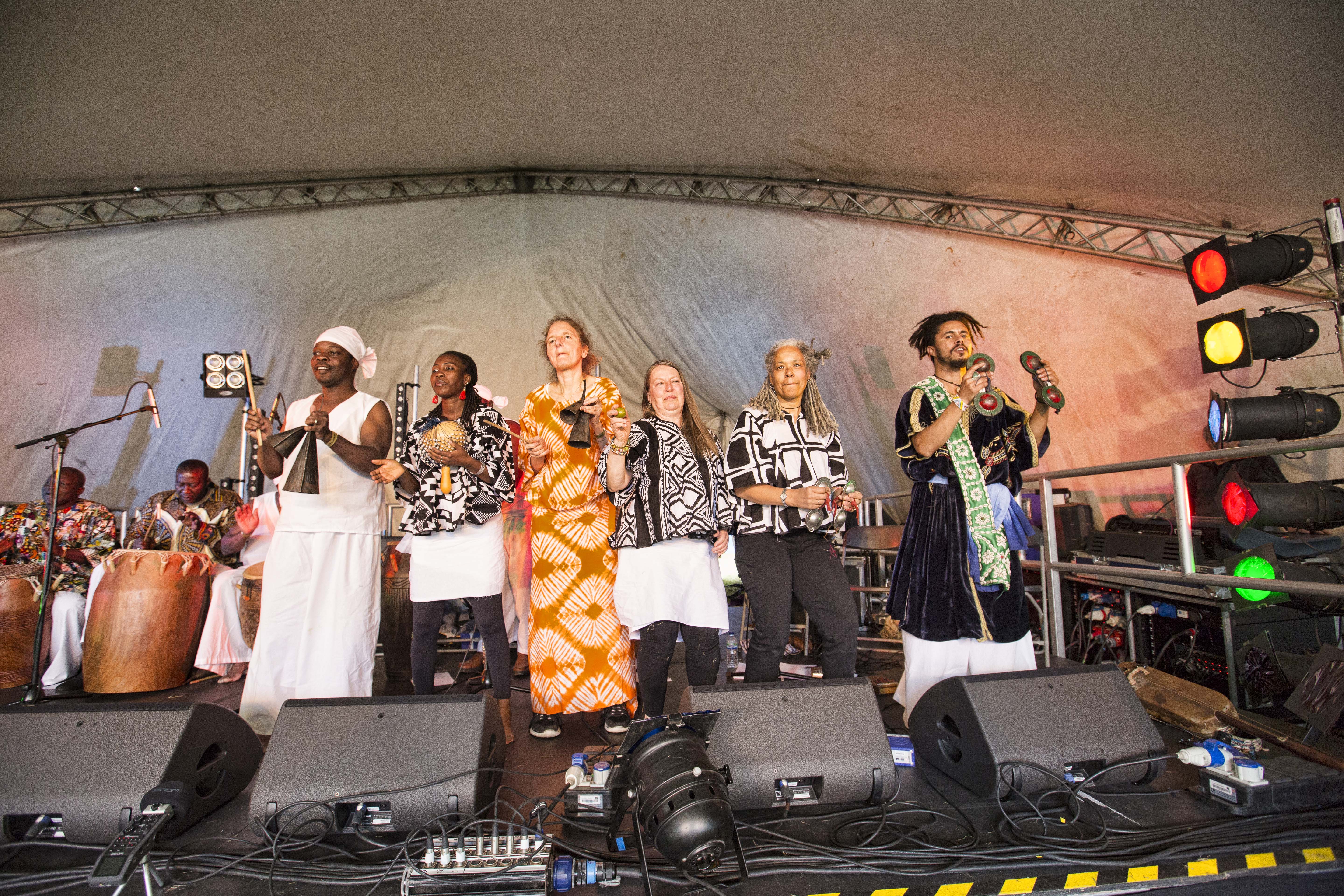 Ha Orchestra providing the music for Broken World, Broken Word
Ha Orchestra providing the music for Broken World, Broken Word
Photo: Karen Gordon
Alison Phipps in the Home Tent
Alison Phipps curated a session on the theme home with speakers from a range of international backgrounds and with experience of offering hospitality. How do music, languages affect how we feel at home? What are the objects that enable us to make home on the move? How do times away from home, both forced and chosen affect our understanding of where our homes are made. And how do we know when we are at home?
Tie-dye workshop with Naa Densua Tordzro
In this workshop, Ms Naa Densua Tordzro tought participants about printing techniques with the use of Ghanaian Adinkra symbols. These symbols are an important cultural heritage of Ghana and they were used to create meaning within the activity. While printing, the participants were given the opportunity to reflect on their own cultural heritage and beliefs.
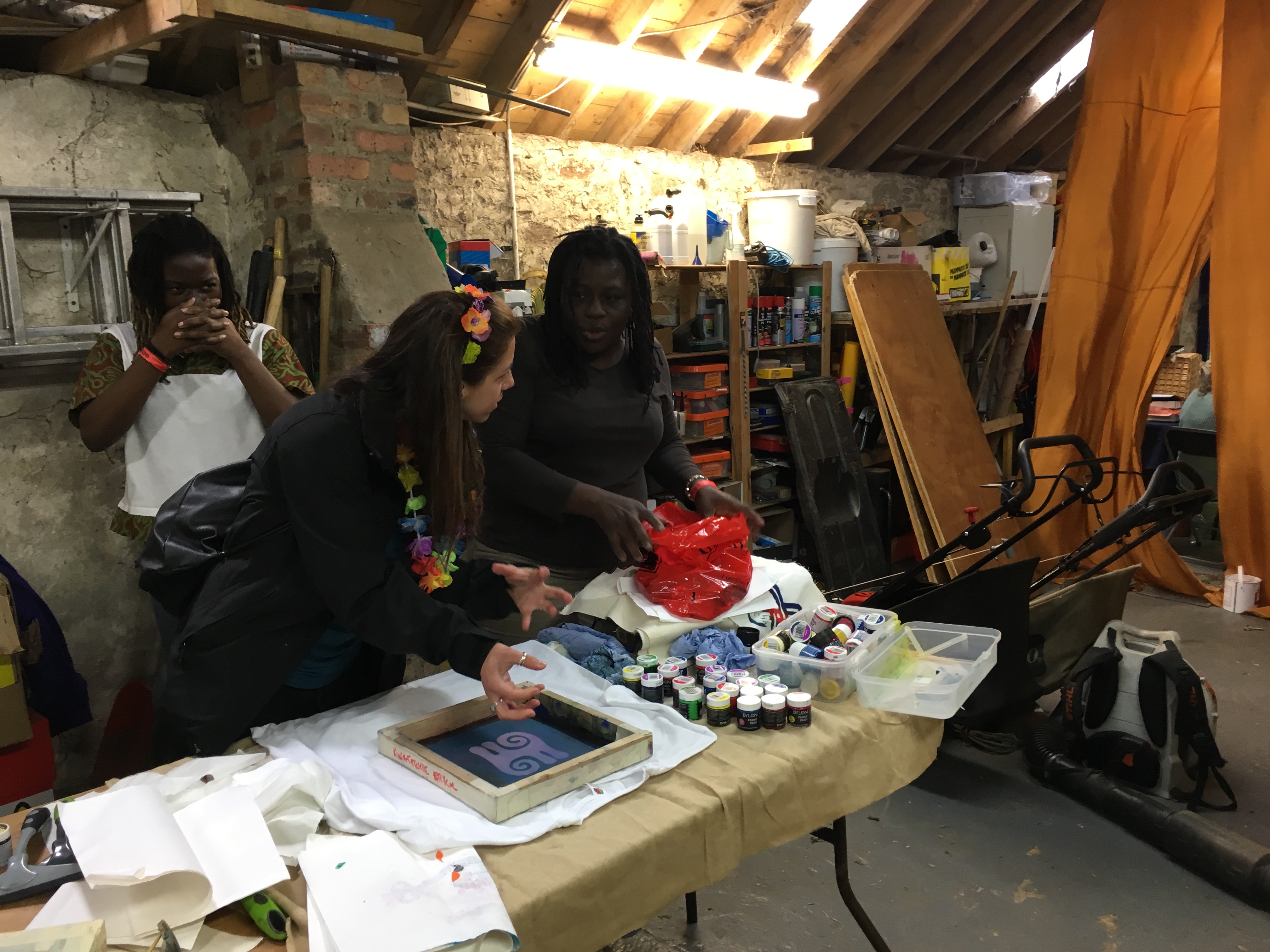 Naa Densua Tordzro teaching at her tie-dye workshop
Naa Densua Tordzro teaching at her tie-dye workshop
Professor Charles Forsdick
Professor Charles Forsdick, specialist on the Haitian Revolution and former co-director of the Centre for the Study of International Slavery, talked about the histories of slavery and the role of the resistance of the enslaved in abolition and emancipation. He explored the legacies of slavery, and the ways in which the historical phenomenon continues to shape contemporary cultures and societies. His talk also addressed questions of memorialization and reparation, and considered the extent to which there are links between previous antislavery movements and their modern equivalents that have achieved many successes, including new legislation, changes to company supply-chains and increased public awareness.
Creative writing workshop by Tawona Sitholé
UNESCO Chair Artist in Residence Tawona Sitholé delivered a creative writing workshop, open to people from all backgrounds and of all ages.
Dance workshop by Noyam African Dance Institute
Noyam African Dance Institute spent two hours teaching us how to dance. Participants were invited to learn moves from various African dances and were encouraged to create their own dance moves.
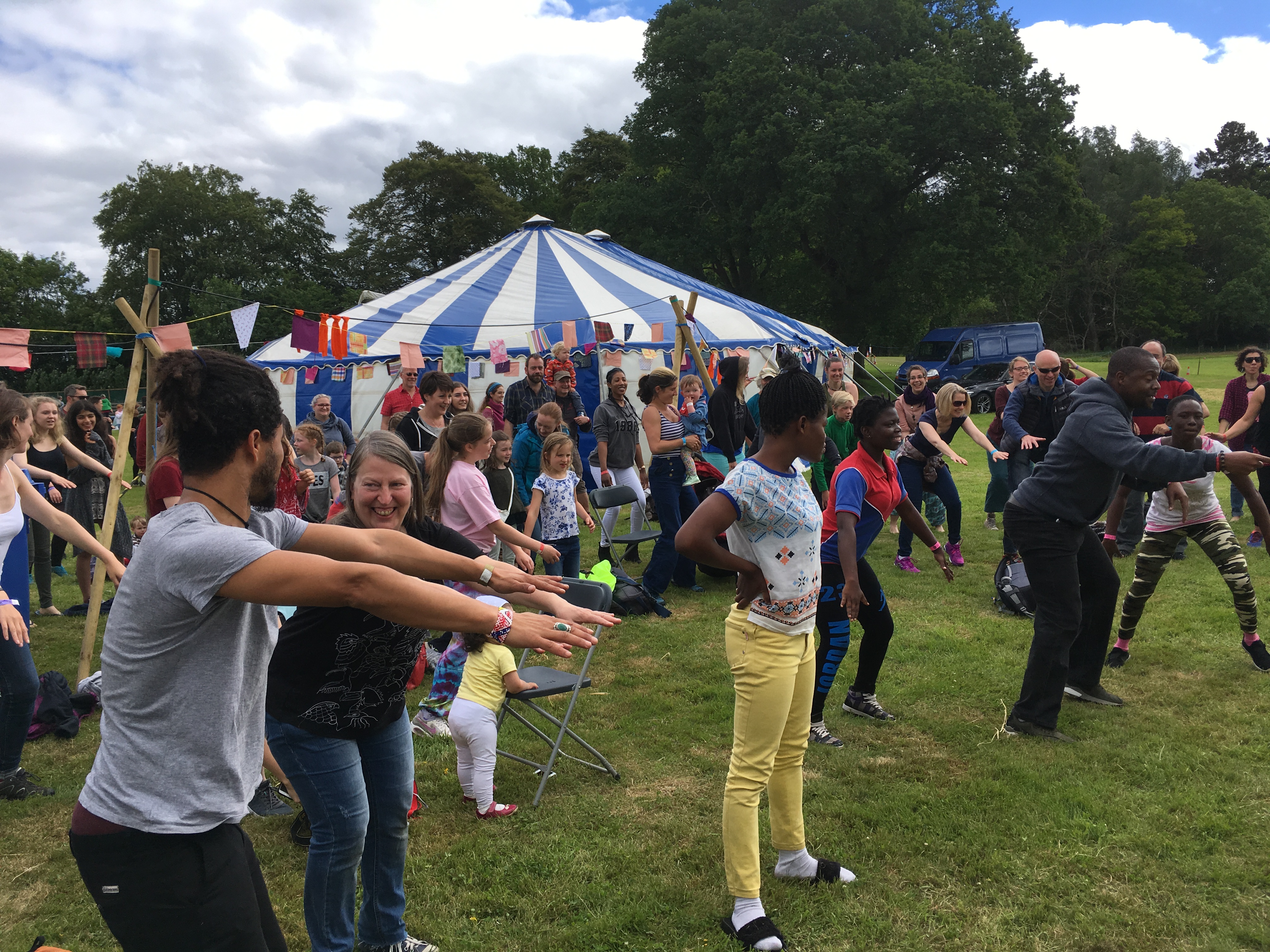 Photo: Alison Phipps
Photo: Alison Phipps
To fund their dance productions and classes, Noyam had a stand where they sold their own handmade tie-dye cloth and various other Ghanaian products.
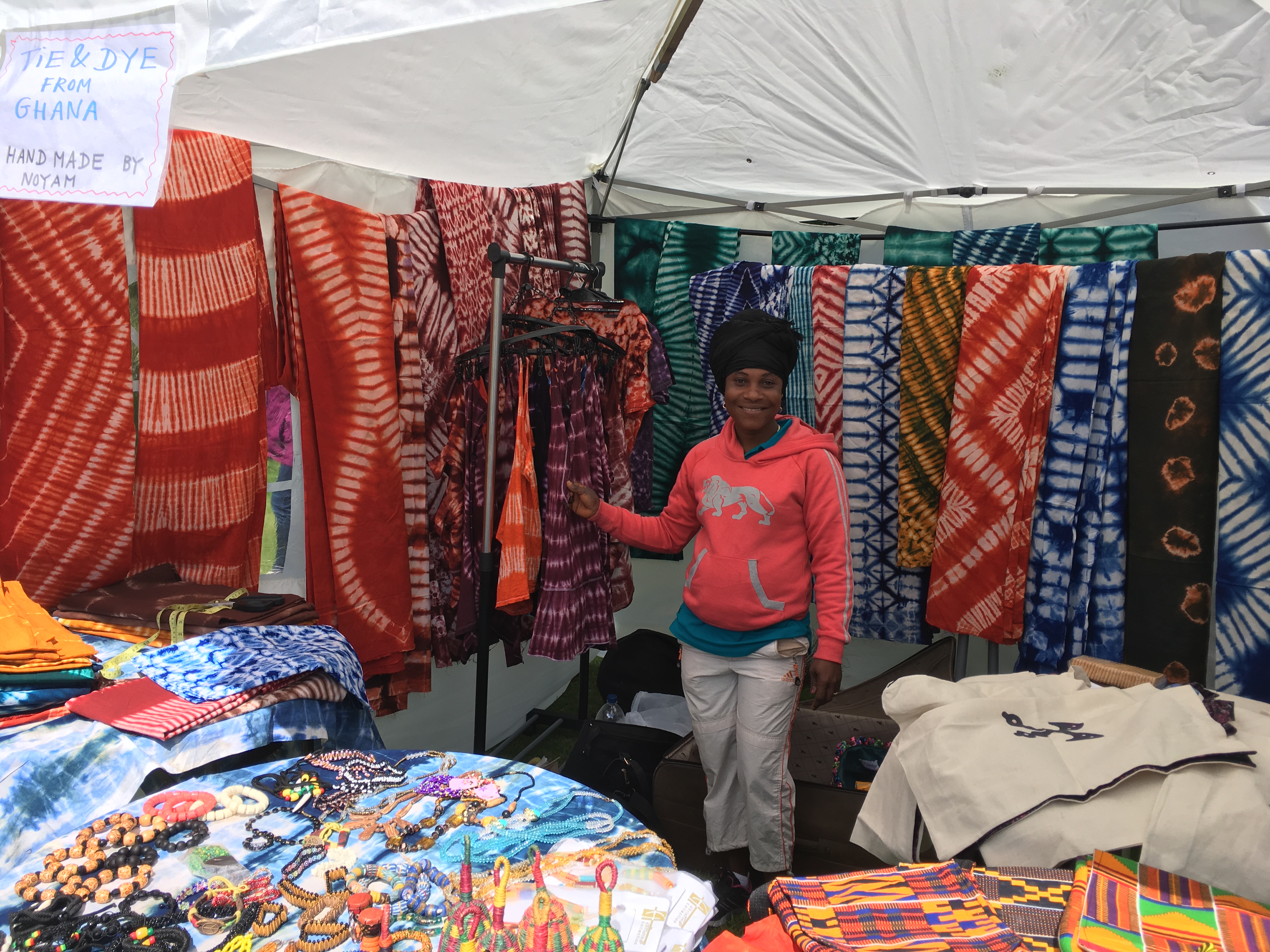 Photo: Alison Phipps
Photo: Alison Phipps
Alison Phipps repeat of UNESCO Chair Inaugural Lecture
The University of Glasgow has been invited by UNESCO’s Director General to join its prestigious universities network and establish the first UNESCO Chair in Refugee Integration through Languages and the Arts. The Chair is being held by Professor Alison Phipps and is the first UNESCO Chair to investigate Refugee Integration, worldwide, and to include artists in residence.
This lecture was a repeat of the UNESCO Chair Inaugural Lecture, which took place at the University of Glasgow on World Refugee Day, 20 June 2017. It explored the role language and arts play in societal integration and the creative processes at work in intercultural encounters. It also offered a critique and development of existing understanding of integration and explore new possibilities. The lecture involved the work of Gameli Tordzro and Tawona Sithole, artists in residence with the UNESCO Chair, as well as extracts from Noyam African Dance Institute's show Broken World, Broken Word.
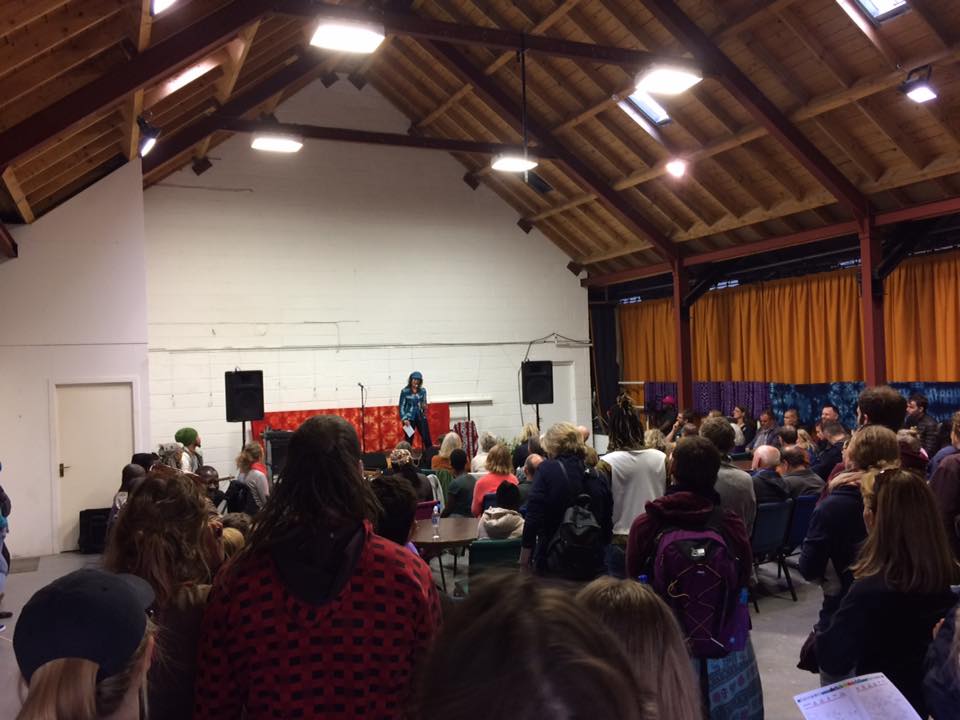
Alison Phipps at the repeat of the UNESCO Chair Inaugural Lecture
Photo: Bella Hoogeveen
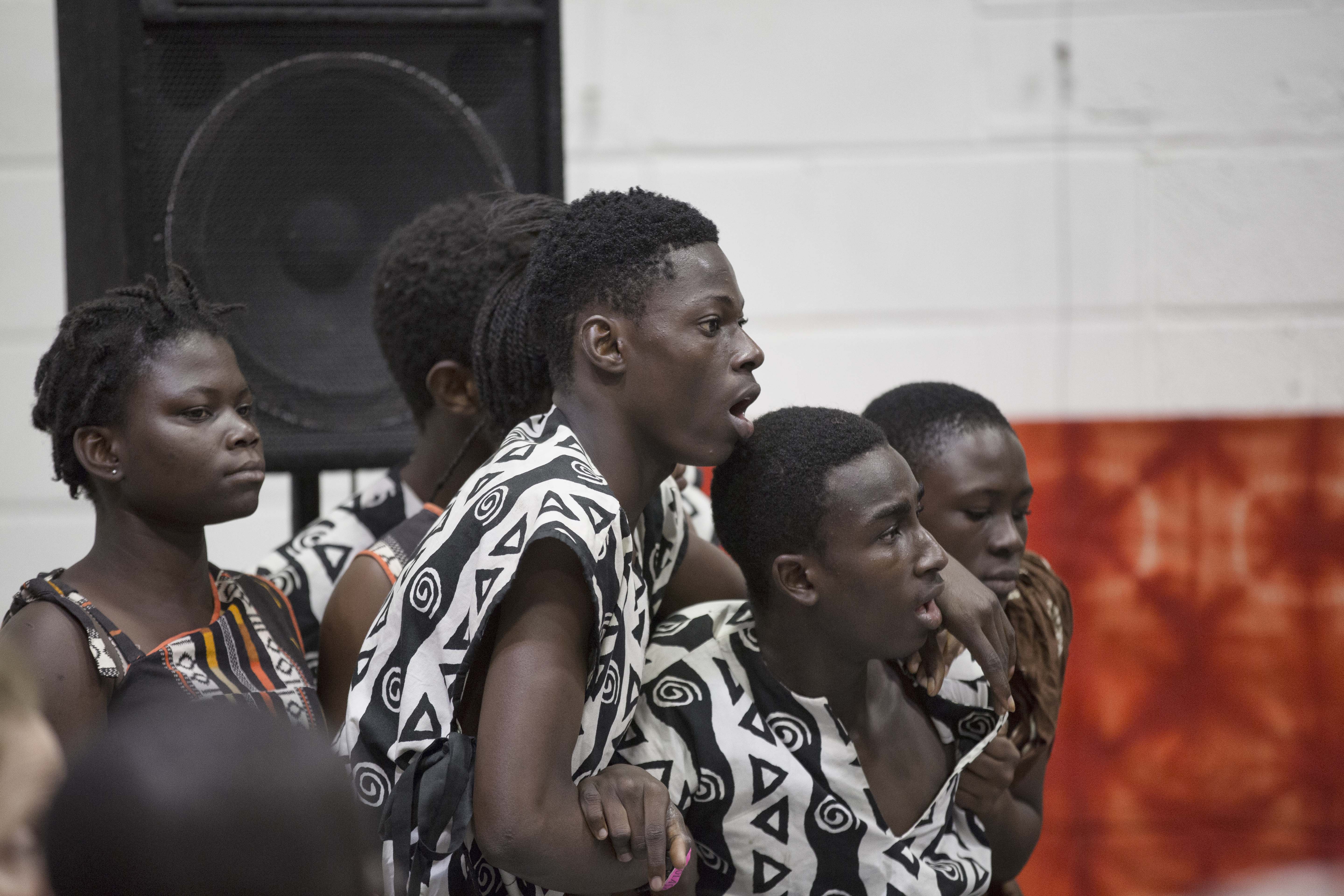 Noyam African Dance Institute performing at the repeat of the UNESCO Chair Inaugural lecture
Noyam African Dance Institute performing at the repeat of the UNESCO Chair Inaugural lecture
Photo: Karen Gordon
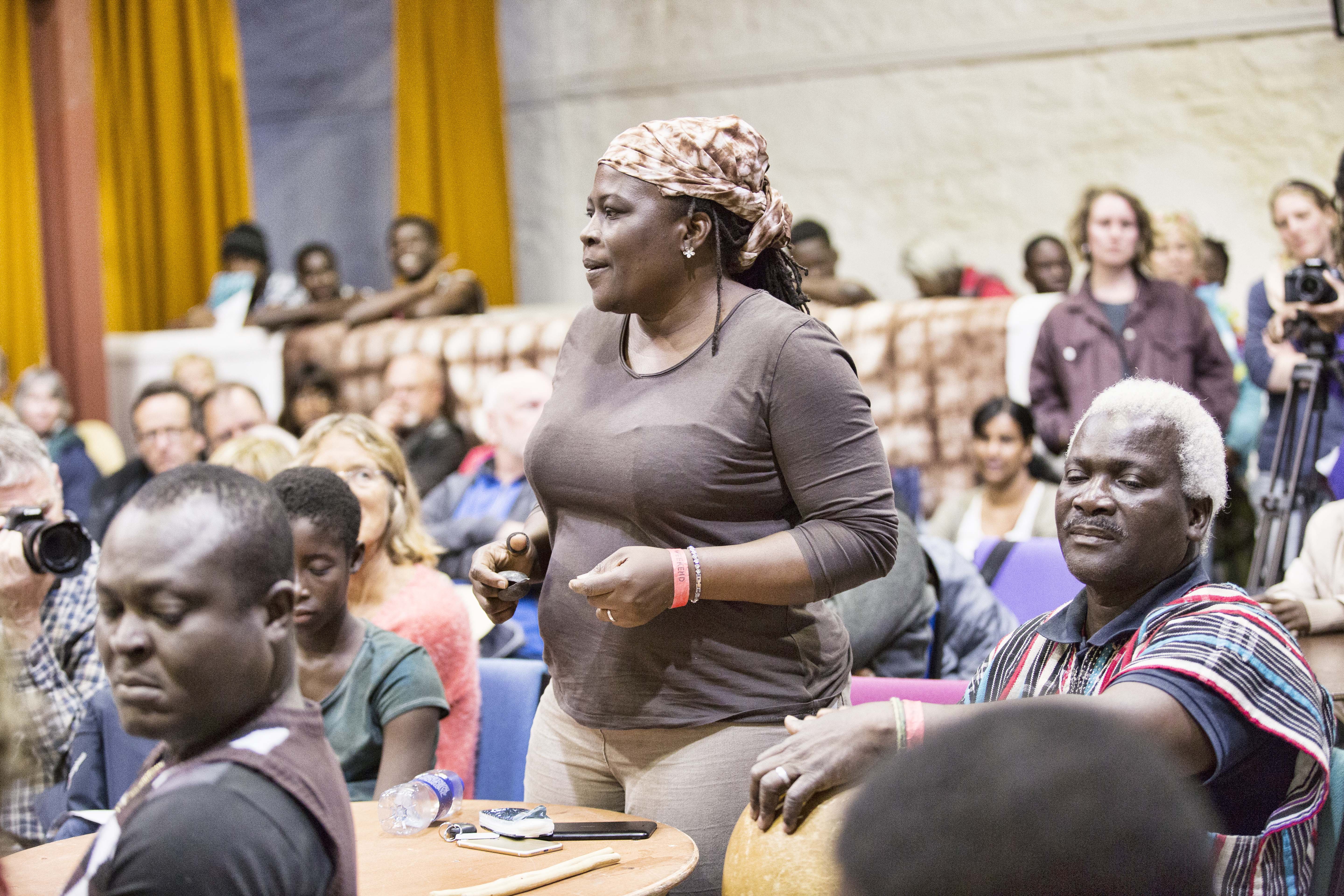 Naa Densua Tordzro performing at the repeat of the UNESCO Chair Inaugural lecture
Naa Densua Tordzro performing at the repeat of the UNESCO Chair Inaugural lecture
Photo: Karen Gordon
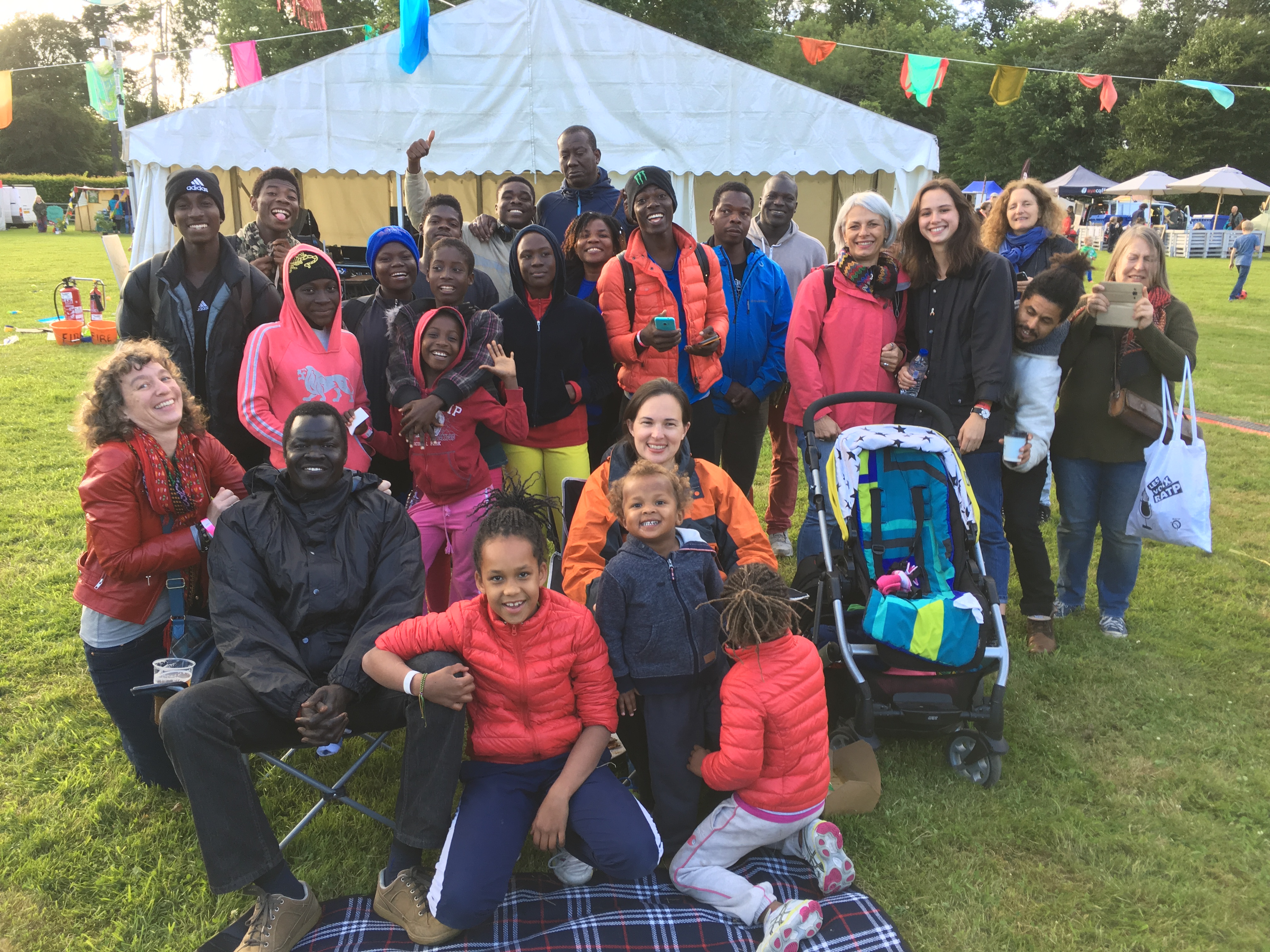 Noyam African Dance Institute and friends at the Solas Festival 2017
Noyam African Dance Institute and friends at the Solas Festival 2017
Photo: Robert Swinfen


